Nonbinary chef Jesse Kirk is serving up authenticity in San Antonio
From the dinner plate to life, they're serving up authenticity.
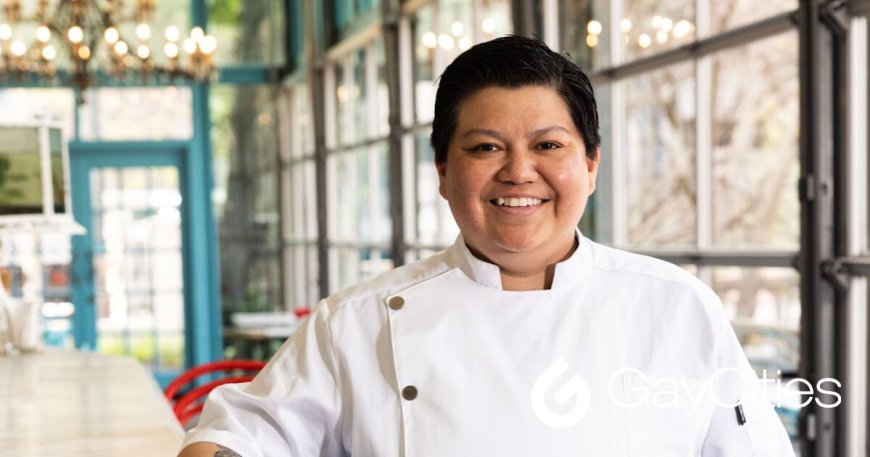
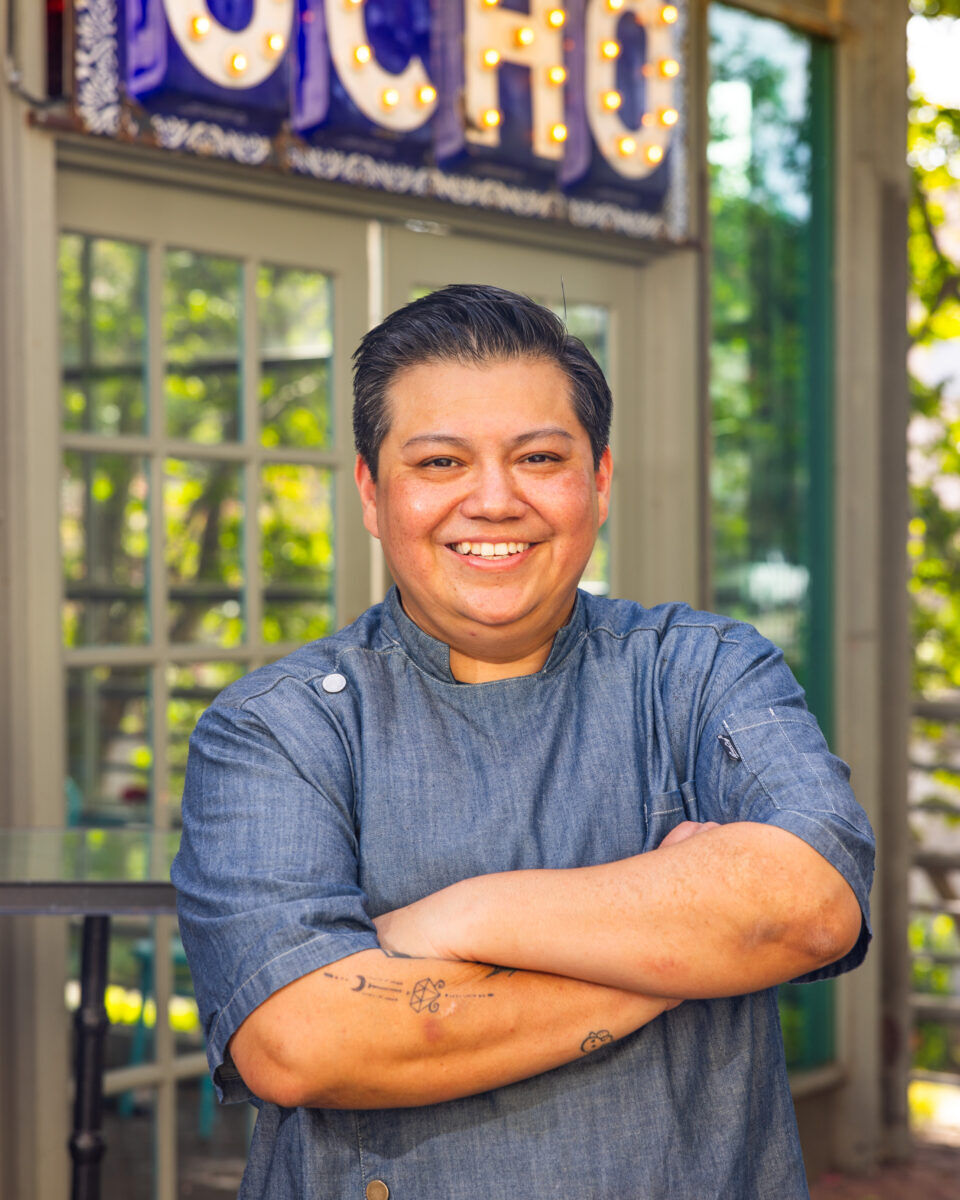
Texas doesn’t exactly have the best reputation for welcoming the LGBTQ+ community, but San Antonio has a surprising amount of queer people behind the scenes running the show.
Among them is trans and non-binary Executive Chef Jesse Kirk of Ocho, located in the iconic and historic Hotel Havana. In 2021, they became the first San Antonio-based chef to win an episode of Food Network’s Chopped and the first chef in all of Texas to win two Food Network shows when they took home the prize in a recent episode of Supermarket Stakeout.
GayCities had a chance to eat a dinner at Ocho presented by Chef Kirk, and we talked to them about their restaurant, their vision, and what advice they have for other people in the midst of a transition.
Pack your bags, we’re going on an adventure
Subscribe to our weekly newsletter for the best LGBTQ+ travel guides, stories, and more.
Subscribe to our Newsletter today
Related
Most loved gay bars in San Antonio
After you’ve spent the day buying fun cowboy gear, head to these popular spots for a night of fun.
GAYCITIES: What got you into cooking in the first place?
CHEF KIRK: Cooking started with watching my mom. She would make pozoles for quinceañeras, and people would pay her for that, or she would throw fiestas and make a feast of different types of food. I was always very proud of her for her tamales. I looked up to all of these educated people who came to my mom asking for dozens and dozens of tamales, and she would just bust out whatever she could in our probably not even 500-square-foot house.
That really motivated me to go on her path and show her what cuisine can be nowadays, and not to be ashamed of it but to embrace the change. We’re touching new people and making new memories, and that’s what keeps me motivated.
What kind of cuisine do you offer at Ocho?
I don’t think it’s any specific cuisine. I like to call it “food without borders.” It’s all cuisines, my story, my travels, my family’s recipes, and the people who have inspired me to create these dishes. That inspiration influenced my storytelling on what I serve, and I make sure I hit those flavors as specifically as I can.
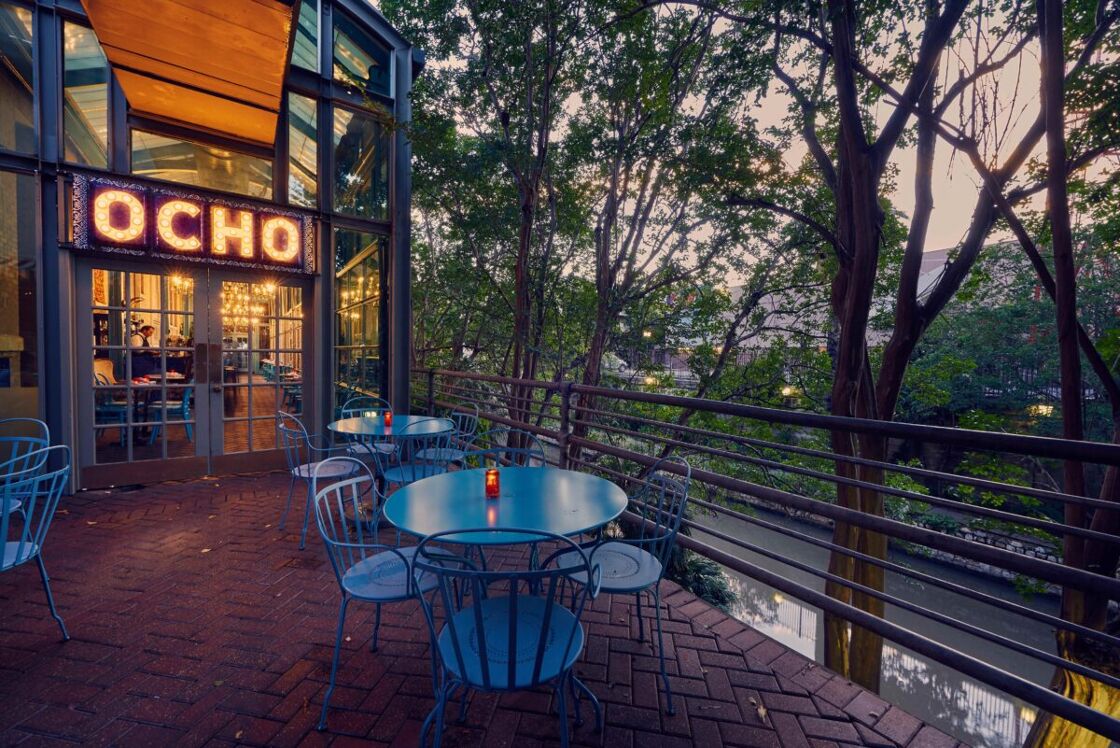
How did you get involved as their Executive Chef?
Oh man, talk about a full-circle moment. Before I started culinary school (at The Culinary Institute of America in San Antonio), I had a friend, Mike, who invited me to go eat at Ocho. I went, thought it was delicious, and said I wanted to be the Executive Chef one day. After school, I was in a wheelchair for a few months, and I had to learn how to walk again, and when I came back, I needed a job. Mike knew I was opening a food truck, Milpa, and he wanted to help me out, so he asked me for my resume, and I gave it to him.
Then I got a call from Ocho that they wanted to interview me. I never applied, but they got my resume from Mike. He knew I had my food truck, but he told me to postpone it and give Ocho a try. It came down to a few chefs, and they saw that what I made was very traditional Mexican and hard to do out of a food truck. I saw the possibilities I could do with their equipment, and I knew it would be interesting and challenging for my career. So I accepted.
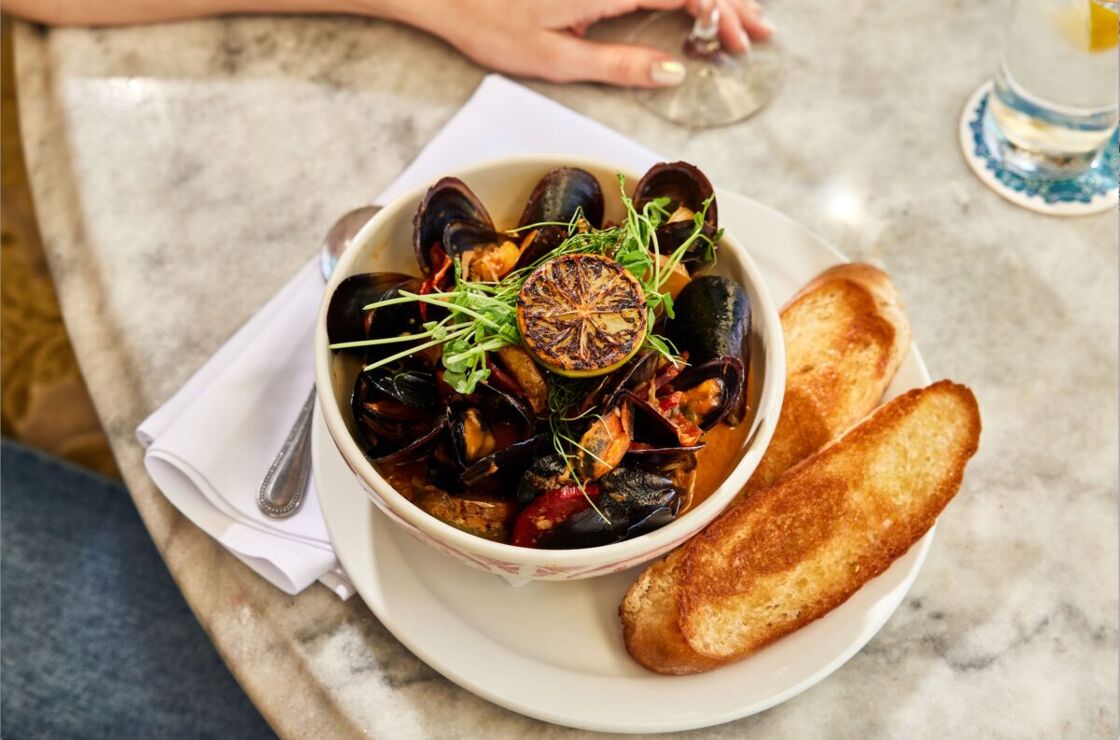
I had a delicious meal while I was there, but if someone were to come in and order just one thing, what would you recommend?
I would say the mussels. The Mejillones Borrachos are something people want more of every time. I don’t get tired of them. They’re just so enjoyable. They’re good in summer or winter; you can chase them with a beer, you can chase them with a shot, and you can do them as a shot. There’s just so much to it, so I would say the mussels are a dish I highly recommend that I know people keep coming back for.
You said you had Milpa before Ocho, but you recently started it up again. What brought you back?
I did them both for about a year before realizing it would require a lot more time. I focused on Ocho for about two and a half years before COVID hit, and then we stopped. I had such a great team and didn’t want to lose anybody, so I thought, ‘Let’s start this project again.’ I had already won Chopped. I had this money coming, so I took it and opened Milpa again. I had some friends who helped me out with the truck and finding an affordable rental location. It’s been interesting tackling both at the same time again, but if it wasn’t for COVID, I don’t know if I would have gone back to it.
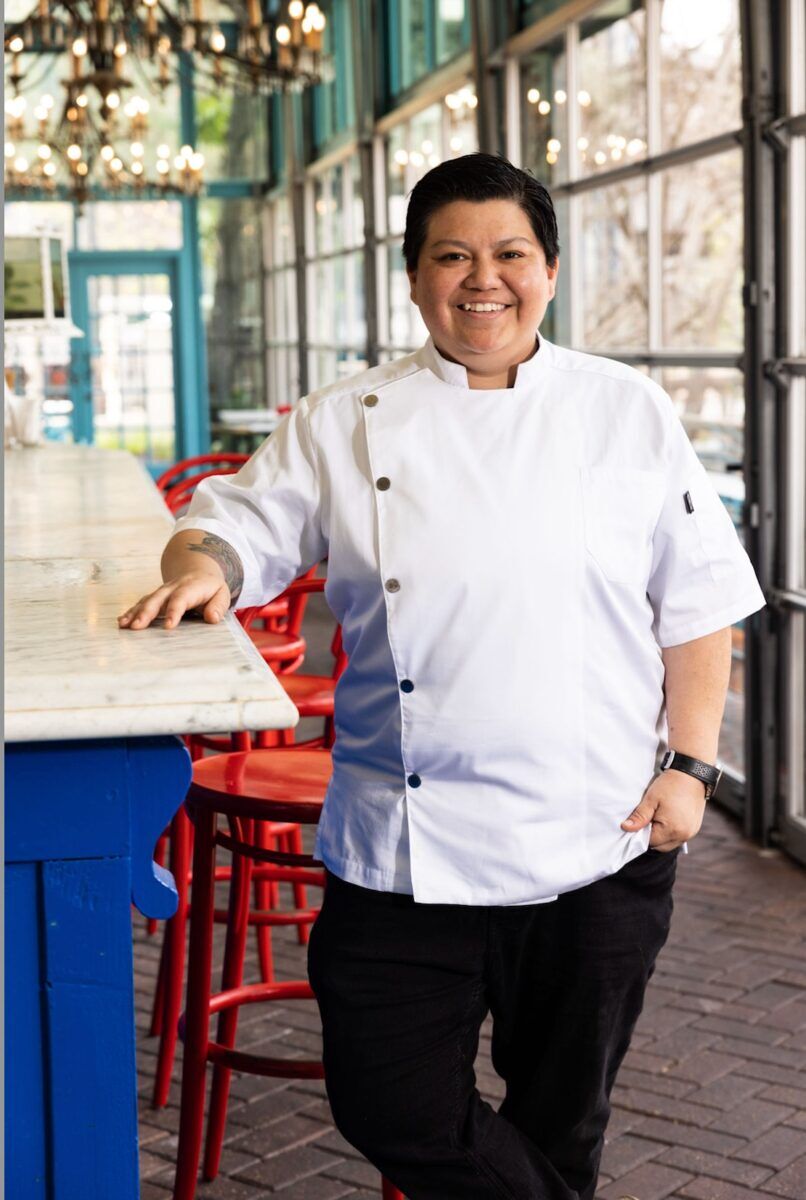
Tell me about your time on Food Network. You just got your second win, congratulations!
Yeah, I competed on Supermarket Stakeout, a Food Network show where they give four chefs a $500 budget, and you buy ingredients through three rounds. Each round is different; the judges will give you a theme, and you have to learn how to budget and be efficient with what you have. It was another $10,000 prize. I’m the first chef in Texas to win twice on the Food Network.
That’s awesome, well deserved. Your transition was pretty recent for you. How did you decide to go public with that?
It started maybe five years ago. I knew what I wanted; I just didn’t know when I could do it. I thought about my developing career, and then I was on Chopped, and I didn’t know how it would go with me growing with Ocho. I didn’t know if there would be any backlash, but Bunkhouses (who owns Ocho) is a very open and embracing company.
When I started feeling this way, I talked to my mom first. I cried like a two-year-old, like that deep cry you just need to let out. I had already been thinking about it since I was a kid. I would always say I was a boy and identified myself as a boy when I was younger. It was always hard to be told I was a girl or a tomboy. As I got older and into my 30s, my body as a woman started showing more, and I started becoming a little more in my shell.
I thought it would break my mom’s heart if I told her, and I thought I’d wait until after she passed before I said something. My mom is healthy and great, and I’m blessed for that, but I knew I couldn’t wait forever. I was 35, and I’d lived half of my life as someone that I didn’t feel in my body. I wanted to live the rest of it as how I felt. I didn’t even have mirrors in my house. After I told everyone and they were happy for me, I started talking to doctors about transitioning, and I went for it. I’m excited I get to live two lives in one.
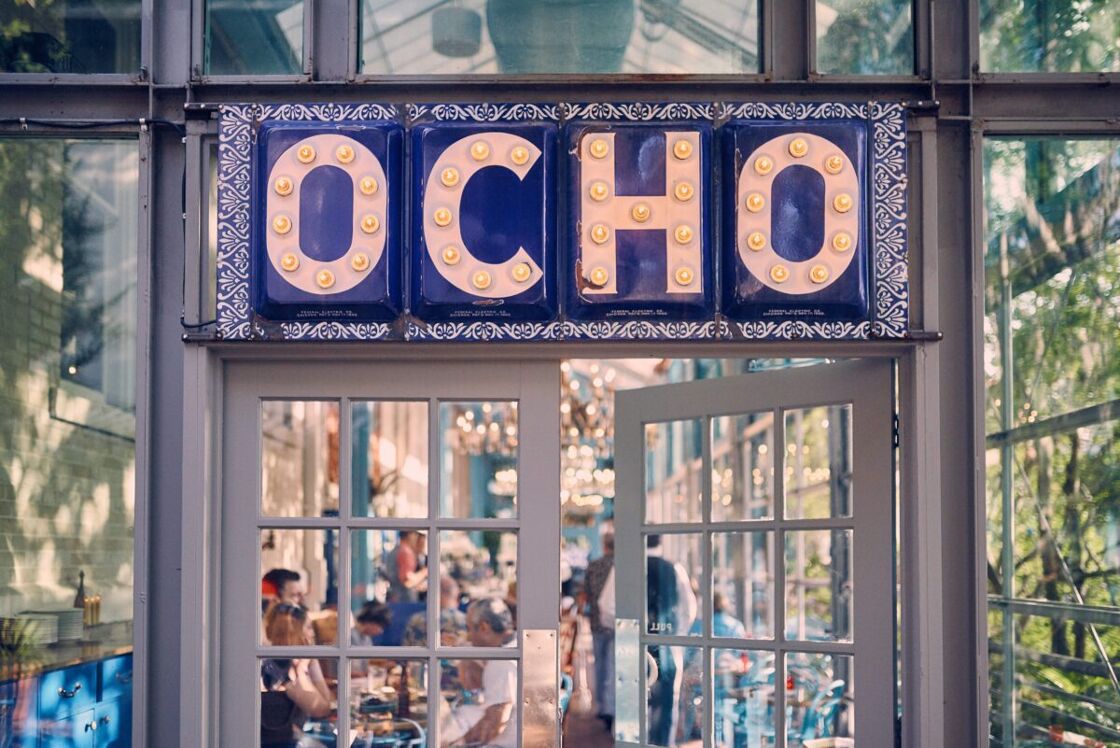
I’m very proud of you. Do you feel any pressure, especially now that you’re on TV as your authentic self, to represent trans chefs in Texas?
I’m very natural at connecting with people, and I’m very respectful. People aren’t ugly with me, and people aren’t disrespectful. Everyone calls me Chef. I don’t even worry about pronouns anymore. “Chef” is now my identity, my pronoun.
It has been a little difficult, but San Antonio is very open to what’s happening. Every city will have a group that’s just not for it, but most people here in San Antonio overlook that and aren’t concerned with it. They want to be around you for your energy and who you are, not because of anything else.
What would you tell someone who’s transitioning or thinking about it?
People get scared that you can’t be yourself, but other people can see when you’re true to yourself and love yourself. It’s not something that you should second guess yourself about if you want to transition or if you find yourself not feeling like yourself. Communicating with the people around you that love and support you is necessary. If they’re not supportive, those aren’t the people you need to be around. That’s not always a bad thing. Sometimes, it’s growth. I don’t want anyone to feel scared that they can’t come out. It’s an opportunity.

 Mark
Mark 





